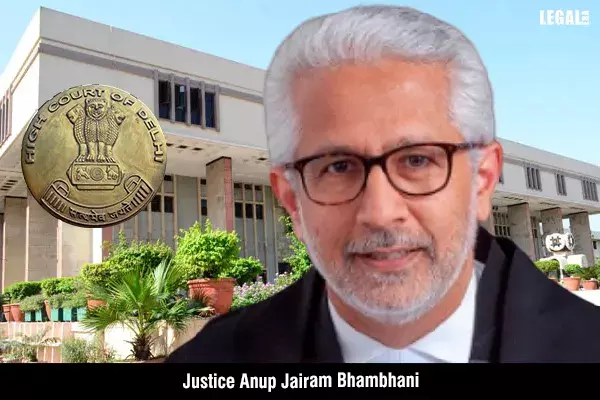Delhi High Court: Award By Unilaterally Appointed Arbitrator Can Be Challenged For Invalidity By The Party
The judge referred to the judgment of the Supreme Court in a previous case;

Delhi High Court: Award By Unilaterally Appointed Arbitrator Can Be Challenged For Invalidity By The Party
The judge referred to the judgment of the Supreme Court in a previous case
The Delhi High Court has held that an award passed by a unilaterally nominated arbitrator can be challenged based on invalidity of the appointment and lack of jurisdiction.
The bench of Justice Anup Jairam Bhambhani stated that the jurisdiction issue could be contested at any stage since it was up to the tribunal to decide the dispute. Under Section 12(5) of the Arbitration and Conciliation (A&C) Act, participation in the arbitral proceedings did not mean an 'express waiver'.
On 10.09.2007, the parties entered a Memorandum of Understanding (MOU), wherein the respondent agreed to carry out certain works for the petitioner. Clause 19 of the MOU provided for the resolution of disputes through arbitration. However, the power of unilaterally appointing the arbitrator was conferred on the petitioner.
When a dispute arose, the petitioner invoked the arbitration clause and unilaterally appointed a sole arbitrator. The arbitral tribunal decided the issue in favor of the respondent. Aggrieved by it, the petitioner challenged the award on the arbitrator’s unilateral appointment.
The petitioner submitted:
• The award is a nullity since the arbitrator lacked jurisdiction to decide the dispute between the parties.
• The appointment was invalid since under Section 12(5), he could not have been appointed unilaterally by the petitioner.
• The appointment can also be challenged by the appointing party, and at any stage including Section 34 for the first time.
The respondent’s counter-submission:
• The arbitrator was appointed by the petitioner, and it participated in the proceedings without any protest.
• An award cannot be challenged based on the unilateral appointment by the party making such appointment.
• The petitioner cannot be allowed to approbate and reprobate. The petitioner raised the issue only after receiving the award.
Justice Bhambhani referred to the decision of the Supreme Court in the Bharat Broadband Network Ltd. vs. United Telecom Limited case. He held that the unilateral appointment could be challenged by the appointing party and participation in the arbitral proceedings could not be considered forfeiting the right to object.
The bench stated that the unilaterally appointed arbitrator lacked inherent jurisdiction and proceedings and his decision was void ab initio. As required by the law, there was no waiver between the entities. The jurisdiction issue could be challenged at any stage.
The judge observed that the arbitrator had rejected both the claims and the counter-claims. Thus, he set aside the award and allowed the parties to reinitiate the arbitral proceedings before an independent arbitrator.

